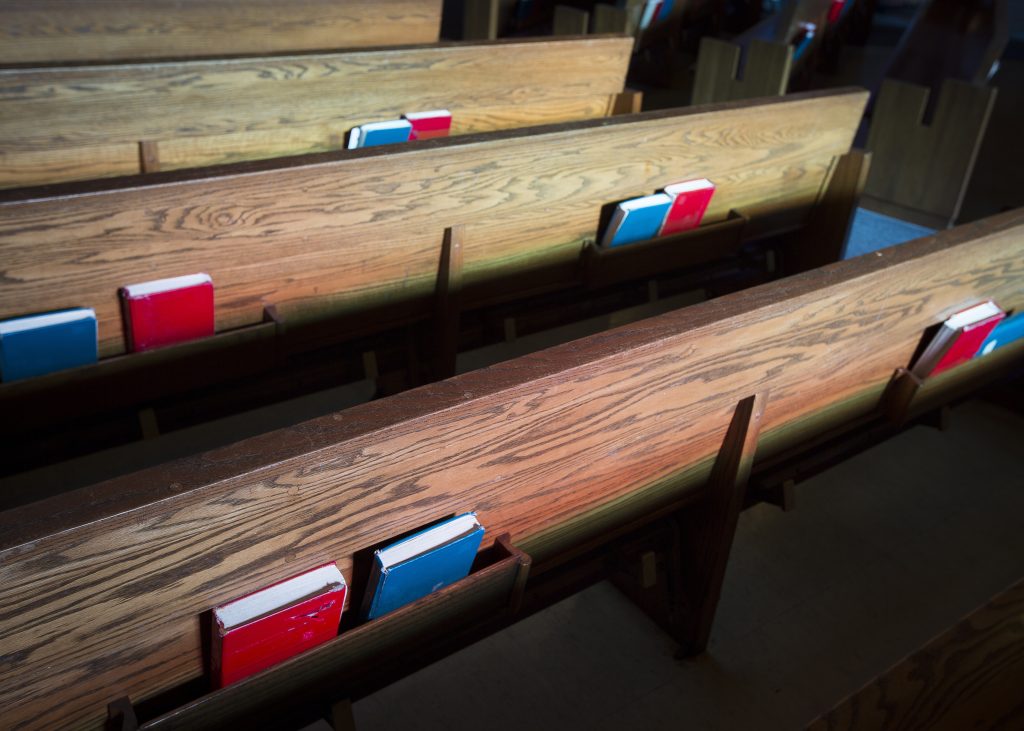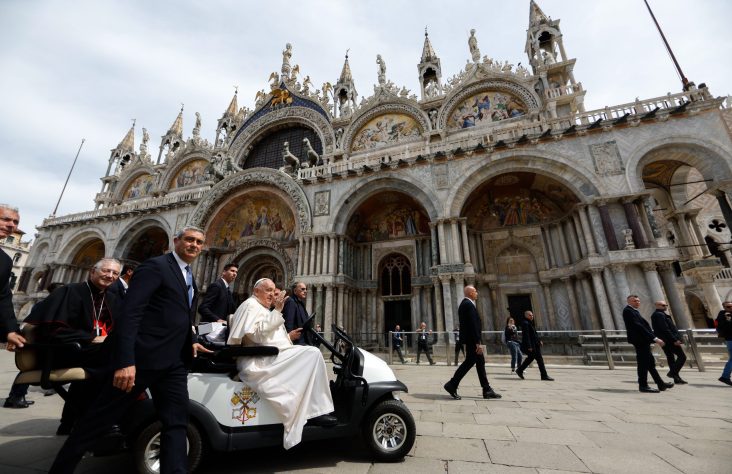January 31, 2024 // National
‘Nuanced Nones’ Challenge Parishes to Be More Outward Facing
(OSV News) – A new study offers a more nuanced take on the nation’s religiously unaffiliated, and the findings show that Catholic parishes need to become more “outward facing” to reach those beyond the pews, an evangelization expert said.
“This is the managing of the journey out of Christendom,” Sherry Anne Weddell, Co-founder and Executive Director of the Colorado-based Catherine of Siena Institute, told OSV News. “And what we’re struggling with is, what does it mean now to function missionally outside of Christendom? That’s the transition.”
“Religious ‘Nones’ in America: Who They Are and What They Believe,” released on Wednesday, January 24, by the Pew Research Center, found that about 28 percent of U.S. adults are religiously unaffiliated. Of that group, which has been dubbed the “nones,” 63 percent described their religion as “nothing in particular,” with 17 percent saying they were atheist and 20 percent saying they were agnostic.

‘Nuanced Nones’ Challenge Parishes to Be More Outward Facing
Weddell, author of the 2012 book “Forming Intentional Disciples” and a consultant for hundreds of parishes worldwide, said the study was “really fascinating” and “fits everything else” she is seeing in the field regarding the “nones.”
“It’s not a surprise, but it’s wonderful to have it all documented in this way,” she said.
The Pew data reveals a more complex view of “nones,” exploring their views of God, religion, morality, science, and spirituality.
Broadly, researchers found that most “nones” believe in the God of the Bible (13 percent) or another higher power (56 percent), but few attend religious services regularly: 90 percent said they “seldom” or “never” do.
Pew researchers noted that “nones” are “not uniformly anti-religious,” allowing that religion can do either equal amounts of harm and good (41 percent) or more good than harm (14 percent), although most “nones” maintain that religion does more harm than good (43 percent).
Gregory A. Smith, Associate Director of Research at the Pew Research Center and primary researcher for the study, told OSV News that “one of the most important factors in understanding the growth of the nones over time is that this is a generational thing.”
During the last few decades, said Smith, “quite religious” older Americans have aged and passed away.”
The Pew study found that the top reason “nones” cited for their stance was doubt about religious teachings themselves (60 percent), with 32 percent naming a lack of belief in God or any higher power.
In addition, 47 percent of “nones” listed dislike of religious organizations, and 30 percent pointed to negative experiences with religious people. In total, 55 percent of the “nones” said religious organizations, religious people, or both were key reasons for being nonreligious. In 44 percent of the “nones,” a lack of need or time for religion was cited.
Smith told OSV News that while “there are a number of trends that suggest the U.S. is growing less religious … it’s also important to remember that in many ways the U.S. remains a very religious place, and most Americans identify as Christians.”
For Catholics, the challenge is now to focus on “two big starting points” for recalibrating their pastoral outreach to “nones” – those who may be in the pews and those beyond the church doors, said Weddell.
“We want to break the silence about the reality of a living relationship with God; we want to break the silence about Jesus,” she said. “The Church teaches that when we name His name, He is present; we’re invoking His presence.”
The second “crucial” step is “serious, intercessory prayer for a change in the local spiritual climate,” joining with Christ, who is “interceding for every human being, and for the purpose of God in the fulfillment of the Father’s plan of salvation,” Weddell said.
Such prayer lifts the “secular haze” that “makes it very difficult for people to see and experience the presence of God,” she said.
Amid the National Eucharistic Revival – a three-year, grassroots initiative of the U.S. bishops to enkindle devotion to the Real Presence – parishes can offer Eucharistic adoration to seekers, inviting them to encounter Christ and pursue a deeper relationship with Him through the Catholic faith.
“The great high priest intercessor is dwelling in our tabernacles … pouring out His Holy Spirit,” Weddell said. “When we intercede (for souls), we will see a lot more of these sovereign sort of actions of God that we don’t have in our five-year plan, that we never even dreamed of, and that we don’t even have concepts for.”
Gina Christian is a national reporter for OSV News.
The best news. Delivered to your inbox.
Subscribe to our mailing list today.






